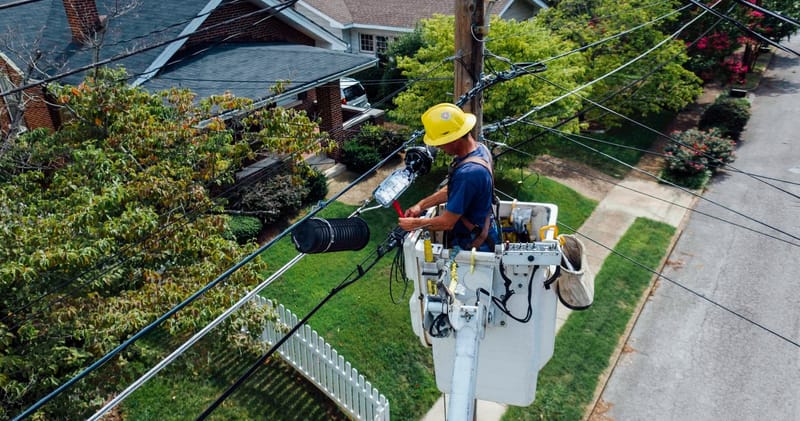
Becoming an electrician is a promising career path, but before you can start working, you will need to ace an interview. Interviews are different for every position, and there are certain questions you will likely be asked if you are interviewing to become an electrician.
When you are preparing for an electrician interview, don’t leave it up to chance. Take time to prepare for your interview, and tailor your answers specifically to electrician interview questions.
Keep reading to find out what questions you will likely be asked in an electrician interview, and how to answer them.
Electrician Interview Questions You’ll Need to Answer
As an electrician, do you specialize in any particular areas of this field?
Almost every position has specialties, and electricians are no different. There are plenty of different electricians out there. You’re different from every other electrician applicant based on your education level, title and specialization.
When answering this question, take a deep dive into what makes you unique and special as an electrician. Share what level of education you have. If you have no formal electrician education, you’re an apprentice electrician. If you’ve received the most amount of education possible, you’re a master electrician.
Also, explain whether you’re an outside lineman, inside wireman, installer technician, and residential wireman. Then, explain your specialization. Share whether you focus on residential, commercial, industrial, or maintenance work. Talk about any aspects of the job that you’re particularly excited about.
Lastly, when answering this electrician interview question, don’t be afraid to share any areas you’re interested in learning about.
What types of electrical systems have you worked on in the past?
Going into a job interview, always expect questions about previous projects you’ve worked on. In an electrician job interview, you’ll often have to explain what types of electrical systems you’ve worked on. These questions are a great opportunity to share your technical knowledge.
For this question, it’s best to explain the specifics of the projects you’ve worked on and the roles you’ve fulfilled. Stick to previous projects that relate to the job you’re currently interviewing for. If you know the job you’re interviewing for focuses on low voltage systems, then find examples tied to that type of work.
When answering this question, you want to try to show how the previous electrical systems you’ve worked on will prepare you to work on the electrical systems at this job. If that previous related experience comes from training, don’t hesitate to explain that. Training experiences are great to draw from.
When explaining these previous past projects, emphasize how much you enjoyed the work.
What is the most challenging project you’ve worked on in your career?
This is another way interviewers may ask about your electrician experience. Except with this question, it’s asking you to confront your weak spots. While you do have to talk about the challenges you have faced, don’t forget to emphasize how you worked through the problem.
To answer this question, focus on one project. Again, bonus points if you can relate it to the type of work you’re interviewing for. Frame your answer using the STAR method:
- Situation: Describe the situation you were placed in and what made it so challenging.
- Task: What was your responsibility in this project? Maybe you had a tight deadline or resolved a conflict with a fellow electrician.
- Action: How did you endeavor to meet the challenge?
- Result: Explain how the situation was resolved. Emphasize what you accomplished or what you learned.
The STAR method is an excellent way to answer this question. When speaking about challenging projects, the most important aspect of that question is to talk about how you overcame the challenge. If someone else came up with the solution, you might want to think harder about another time when you were the one with the answer.
What types of safety protocols do you follow to keep yourself and others safe?
Working as an electrician exposes you to a variety of occupational hazards on a daily basis. Always expect a question that will give you the chance to explain your safety knowledge.
When you’re asked this question in an electrician interview, focus on any previous safety training you completed. The Occupational Safety and Health Administration (OSHA) sets the safety protocols, so be sure to mention any electrician-specific OSHA training you have completed.
When answering this question, here are some topics to prove your knowledge about:
- Personal protective equipment (PPE)
- Circuit protection devices
- What to do in the case of a shock
- Any extra certifications you might have (for example, maybe you’re First Aid & AED certified)
Most importantly with this question, you want to demonstrate that you have a knowledge of electrical hazards, how to protect against them, and what to do if any accidents occur.
Other Topics to Expect Questions On
Here are some more topics to expect electrician interview questions about:
Technical skills: You may be asked specific technical questions to showcase your skills. Mentoring experience: If you’re interviewing for an upper-level electrician job with managerial responsibilities, expect to explain your experience mentoring apprentice electricians. Coworker interactions: You’ll likely be working on a team of electricians, so expect questions about how you interact (or would interact) with coworkers. Equipment: You should be familiar with and able to explain the equipment electricians use on a daily basis. Company-specific questions: You should be able to explain why you want to work as an electrician for this company, and not just any company.
To Land the Interview, Perfect Your Resume
Now that you know how to answer electrician interview questions, you have to continue landing electrician interviews. The key to landing interviews is to perfect your resume. Just because you have a great electrician background, an interview isn’t guaranteed if your resume isn’t effective.
Success landing an electrician role starts with an amazing resume.
